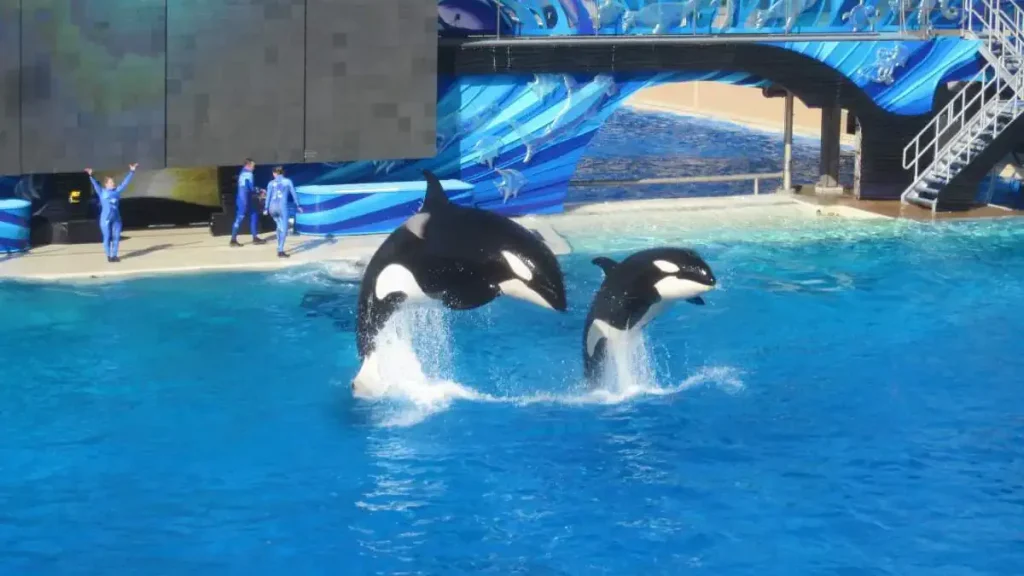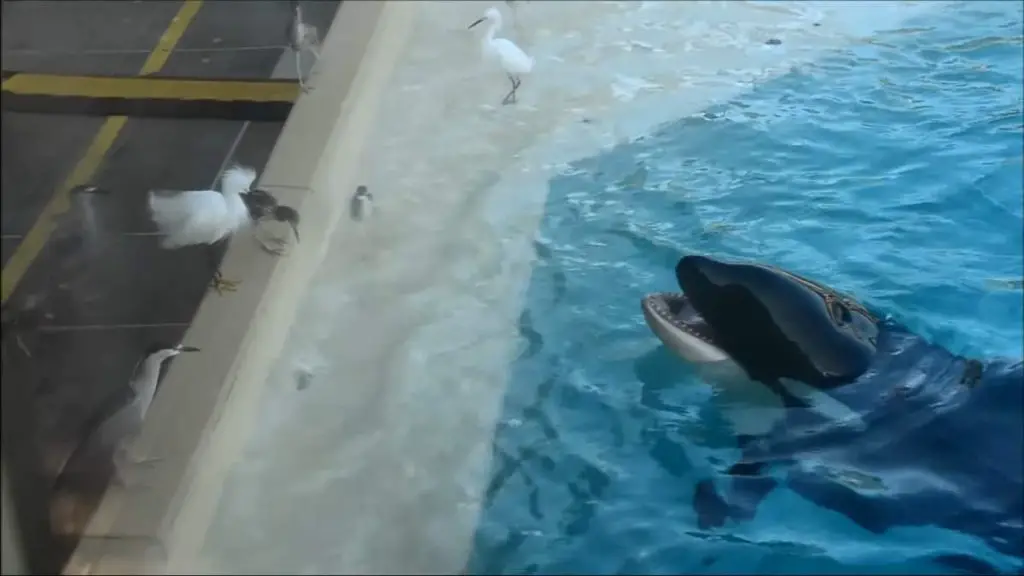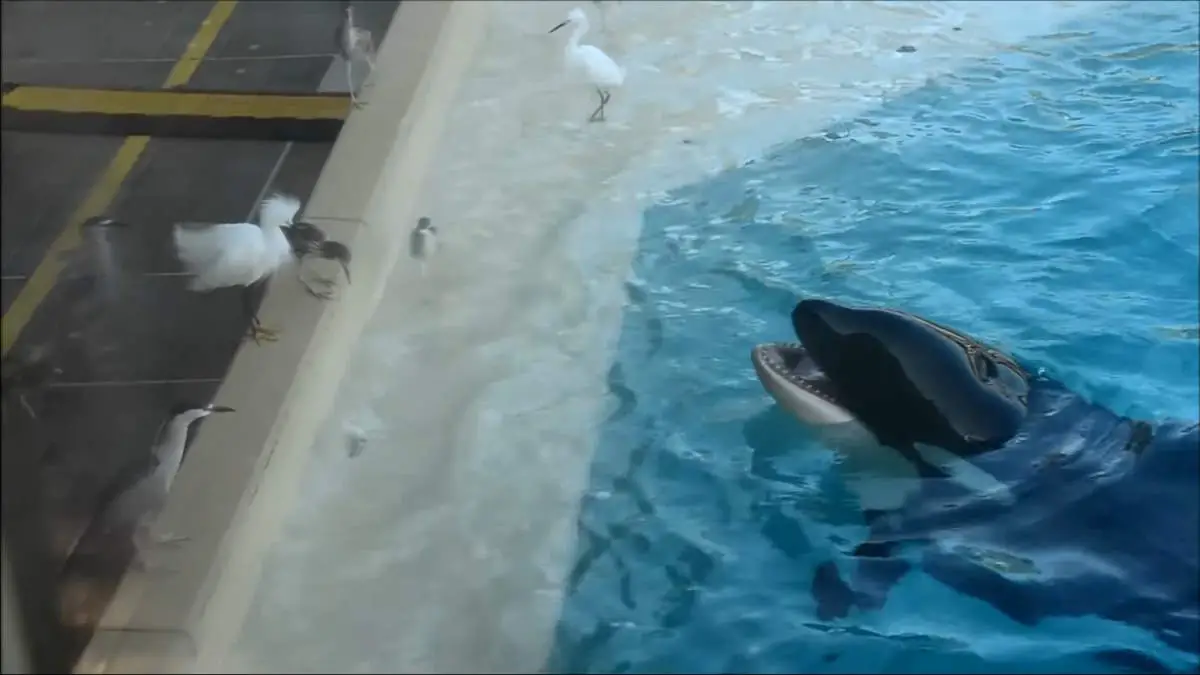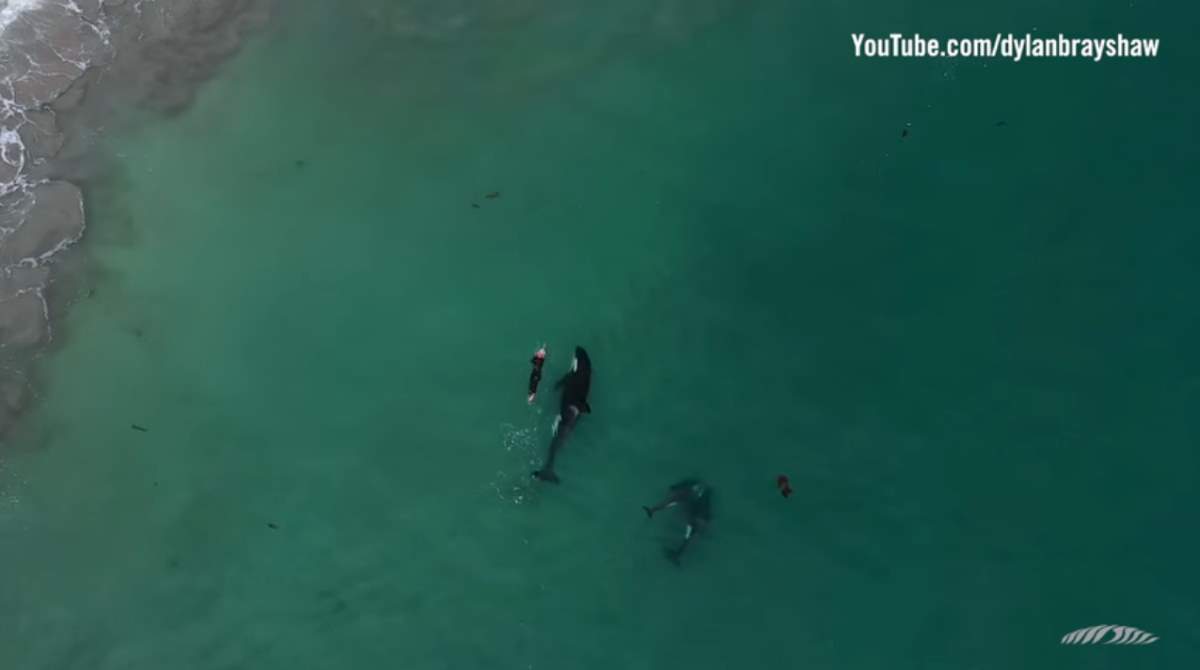The orcas are amazing! They are known for their high intelligence, curiosity, playfulness, and ability to solve problems. But this female killer whale named Kalia who lives at SeaWorld San Diego takes it one step further: she uses a baitfish to hunt a bird!
Nature never ceases to amaze us with its incredible adaptations and behaviors, and a recent video captures one such moment in all its stunning glory. In the footage below, a killer whale can be seen using a clever technique to catch a bird, using a bait fish to lure the unsuspecting bird into the water. The incredible video showcases the intelligence and hunting skills of these majestic creatures and offers a rare glimpse into the fascinating world of marine life.
WARNING: the video includes a lot of the aftermath so if you don’t like seeing dead/decapitated animals stop watching after the initial catch.
At the beginning of the video, Kalia approaches

Kasatka was captured off the coast of Iceland on October 26, 1978, at the age of one year. She has shown aggression toward humans. In 1993 Kasatka tried to bite a trainer during a show, and again in 1999. On November 30, 2006, Kasatka grabbed the same trainer from the 1999 incident, Ken Peters, and dragged him underwater twice during their show. The trainer survived with minor injuries.
Killer Whale – Human relationships
In the wild, killer whales (orcas) have never been known to kill a human. There were known attacks (none of them were fatal), yes, but they are extremely rare. These attacks occurred most probably because the orca mistook the human for a seal.
In captivity, however, it’s another story. Orcas are highly intelligent and social creatures that thrive in the wild, but in captivity, they are often kept in small tanks or enclosures where they are deprived of the ability to swim long distances and engage in natural behaviors. Many orcas in captivity exhibit signs of distress and suffer from health problems related to their confinement, including dental issues and collapsed dorsal fins.
There have also been several cases of orcas attacking trainers or members of the public in captivity, leading to increased scrutiny and criticism of the practice of keeping these animals in captivity for human entertainment. In recent years, there has been a growing movement to retire captive orcas to seaside sanctuaries where they can live out their lives in a more natural environment.
Killer whales are smart
Orcas have the second-heaviest brains among marine mammals (after sperm whales, which have the largest brains of any animal). Their brain weighs as much as 15 pounds (6.8 kg).
Bigger animals typically have bigger masses of brain cells. However, scientists use brain-weight-to-body-weight ratios as a rough measure of intelligence. By that measure, human brains, by comparison, are seven times average. Orcas’ brains are 2.5 times average — similar to those of chimpanzees.
However, scientists think that looking just at the brain-body ratio seriously underestimates the thinking power of larger marine mammals. In other words, killer whales might be even much smarter than the size of their big brain suggests.
Hal Whitehead, a biology professor at Dalhousie University in Nova Scotia, awakened the world of cetacean research in 2001 when he co-authored a controversial paper that suggested no species other than humans are as “cultural” as orcas.
“Culture is about learning from others,” Whitehead said. “A cultural species starts behaving differently than a species where everything is determined genetically”.

Sources
- Killer Whale on Wikipedia
- Kasatka, the Female Orca on Wikipedia
- How smart are killer whales? Orcas have the 2nd-biggest brains of all marine mammals on phys.org
- Budget of NASA, Year by Year [1980-1989] - June 10, 2024
- Budget of NASA, Year by Year [1970-1979] - June 10, 2024
- Budget of NASA, Year by Year [1958-2024] - June 10, 2024

